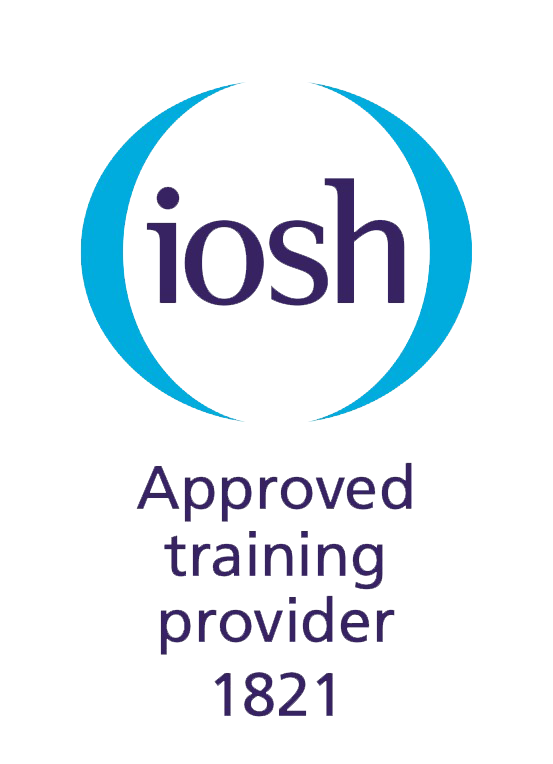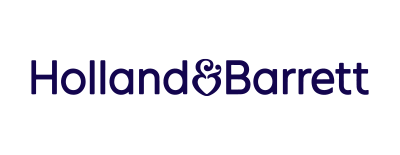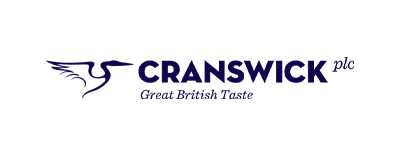Health & Safety
Get peace of mind with hands-on Health & Safety support
- Support from a named, local health and safety consultant with experience in your sector
- On-site audits to help you identify and manage risks
- 24/7 accident and emergency support
- Competent persons undertaking
- Innovative, real-time risk management software
50+
Qualified Health & Safety Consultants
IOSH
Qualified team members
50%
Reduced risk of prosecution


Get your FREE consultation
COVID-19 | FREE expert guidance for employers, including sample policies, template risk assessments and more
When it comes to safe working practices, the consequences of falling short can be devastating. Not only is your reputation at stake, but with civil claims and criminal breaches to worry about, a serious safety incident is every employer’s worst nightmare.
However, at WorkNest, we understand that when you’re trying to run a business, health and safety can become a time-consuming burden, synonymous with red tape and complicated systems – particularly if you don’t employ an in-house employee health and safety team or health and safety is ‘tagged on’ to someone’s role.
From on-site audits to award-winning software, our comprehensive, fixed-fee Health & Safety consultancy support will enable you to take a proactive approach to risk management, fulfil your legal duties confidently, and save valuable time and money. Using our health and safety consultants is the smart way to protect your people and your organisation.

Fixed-Fee Service

Training
Keen to upskill in essential health and safety topics? We can deliver IOSH-accredited health and safety training for workers, managers and directors to boost knowledge, competence and awareness.

eLearning



Why choose us?
Experts in Health & Safety

- Approved by a Primary Authority
- Dedicated specialists with recognised qualifications
- Genuine hands-on experience in managing risk
- Cost certainty with our unlimited, fixed-fee model
- The confidence to act as one of your competent persons
Already have an established
Health & Safety team?
Learn how we can make your life easier.
Who you’ll be working with

Toyah Marshall
Principal Employment Law Adviser
Better with WorkNest
Protecting organisations and achieving results
3x
More solicitors
4x
Reduced claims risk
100%
Qualified consultants
1,500
Years of experience
99.2% Client happiness rating
97% Client retention rating
Who we work with
Proud to support over 40,000 UK employers
Our clients range from small businesses with fewer than 50 staff at a single location, through to large household names employing thousands of people at multiple sites across the UK. Whatever your size or sector, we have solutions to suit your needs.
Get in touch with WorkNest today and consult with the best health and safety agency in the UK.








Customer Stories
As the company started to get larger, we knew we had to protect our employees and our contractors both onsite and in the offices. WorkNest is exactly what we needed to move the company forward.
Joanne Beaver
Operations Director, Beaverfit
Customer Stories
What we recognised in WorkNest is the background that they have. They are able to supply knowledge and experience in a number of disciplines, which enables us to develop our business in a way that’s safe, to do it on time and with a quality to it.
Debbie Rainbow
Director of Human Resources and Health & Safety, Bluestone National Park Resort
Customer Stories
WorkNest supports our 280 staff members with Employment Law and Health & Safety and has provided quality management training too.
Lisa Best
Head of Service Delivery, Catalyst Choice
Supporting our clients
Frequently asked questions

How large does my business need to be for health and safety legislation to impact me?
Health and safety legislation applies to all business regardless of size or sector, and all employers have a duty to ensure that health and safety is effectively managed within the workplace. This duty extends to both employees and any non-employees that may be affected by your activities – including clients, visitors and members of the public. It also applies regardless of whether employees are working on your premises or off site at another location. All employers, for example, must conduct risk assessments to identify and mitigate potential causes of harm. The Health and Safety Executive (HSE) advises that the approach you take should be proportionate to the size of your business and the nature of your business activity. For most small, low-risk businesses, the steps you need to take are straightforward. If you have fewer than five employees, you don’t have to write down your risk assessment or your health and safety policy. WorkNest can help you to strike the right balance and take a sensible, proportionate approach to risk.
What types of health and safety legislation do I need to follow?
The two primary pieces of health and safety legislation that all employers need to be aware of are the Health and Safety at Work Act 1974 (HSWA) and the Management of Health and Safety at Work Regulations 1999. In a nutshell, the HSWA places a general duty on employers to ensure, so far as is “reasonably practicable”, the health and safety and welfare of all their employees while at work, while the Management Regulations set out more specific requirements, such as the requirement to make a “suitable and sufficient” assessment of risks, appoint “competent persons”, provide workers with information and training, and operate a written health and safety policy.
Of course, other legislation may apply depending on the activities you undertake, such as the Personal Protective Equipment at Work Regulations 1992, Manual Handling Operations 1992 and the Health and Safety (Display Screen Equipment) Regulations 1992 which each have their own provisions that employers must be alert to.
What could happen if I breach health and safety law?
This depends on the circumstances – penalties for contravening health and safety law range from an enforcement notice requiring you to rectify an issue identified or stop an unsafe activity, to fines and imprisonment. If an HSE Inspector visits your workplace and finds that you are in material breach of health and safety law, you will also have to pay for the time it takes to put things right. This is known as Fee for Intervention and currently costs £157 an hour.
What is the average fine for a health and safety breach?
According to the latest HSE statistics, the average fine per conviction in 2019/20 was £110,000. This represents an increase of 307% since tougher sentencing guidelines were introduced in 2016 (in 2014/15, the average fine was £27,000 per conviction). If you’re concerned about the impact this could have on your bottom line, WorkNest can work with you to ensure compliance and dramatically reduce risk. What’s more, our optional Legal Expenses Insurance covers the costs of defending health and safety prosecutions (plus Fee for Intervention charges and appealing against the serving of an improvement or prohibition notice) for an added layer of protection.
Do I need to appoint someone to manage health and safety compliance?
Yes. Under Regulation 7 of the Management Regulations, “every employer shall, subject to paragraphs (6) and (7), appoint one or more competent persons” – someone with the necessary training, experience, knowledge and “other qualities” to help you comply with the requirements of health and safety law. If you don’t have somebody in-house who meets this criteria, the HSE says you can appoint an external professional such as WorkNest to help you.
Do I need to consider work organisation hazards for staff currently working at home?
Regulators have a number of options if they believe that a breach of health and safety law is taking place. These include: 1) Writing to you to explain the breach they believe has taken place. Under the Fee For Intervention (FFI) scheme, the regulator can choose to charge you for the time taken to investigate and inform you of this and write the letter. The cost of FFI at the present time is £157 per hour. 2) Improvement or prohibition notices. These may be issued by the enforcing agent whilst on site or remotely. Improvement notices specify specific improvement(s) that must been implemented within a specified length of time. Prohibition notices prohibit specified activities from being carried out until such time as steps are taken to improve health and safety protection as detailed in the notice. If either type of notice is not complied with, further action can be brought in court. 3) Prosecution. Inspectors may choose to bring prosecutions in court under relevant statutory provision, including (but not limited to) the Health and Safety at Work etc Act 1974 and related regulations under this Act
Do I need to consider work organisation hazards for staff currently working at home?
Regulators have a number of options if they believe that a breach of health and safety law is taking place. These include: 1) Writing to you to explain the breach they believe has taken place. Under the Fee For Intervention (FFI) scheme, the regulator can choose to charge you for the time taken to investigate and inform you of this and write the letter. The cost of FFI at the present time is £157 per hour. 2) Improvement or prohibition notices. These may be issued by the enforcing agent whilst on site or remotely. Improvement notices specify specific improvement(s) that must been implemented within a specified length of time. Prohibition notices prohibit specified activities from being carried out until such time as steps are taken to improve health and safety protection as detailed in the notice. If either type of notice is not complied with, further action can be brought in court. 3) Prosecution. Inspectors may choose to bring prosecutions in court under relevant statutory provision, including (but not limited to) the Health and Safety at Work etc Act 1974 and related regulations under this Act
What powers to HSE Inspectors have on site?
HSE Inspectors and Environmental Health Officers have a number of powers they may exercise when enforcing health and safety law. These include the power to: – Enter premises at any time and without notice; – Inspect and investigate; – Take measurements, samples and photographs; – Require an area or machine to be left undisturbed; – Seize, render harmless or destroy dangerous items; – Obtain information, including written documents; and – Take statements including under caution as defined in the Police and Criminal evidence Act 1984.























